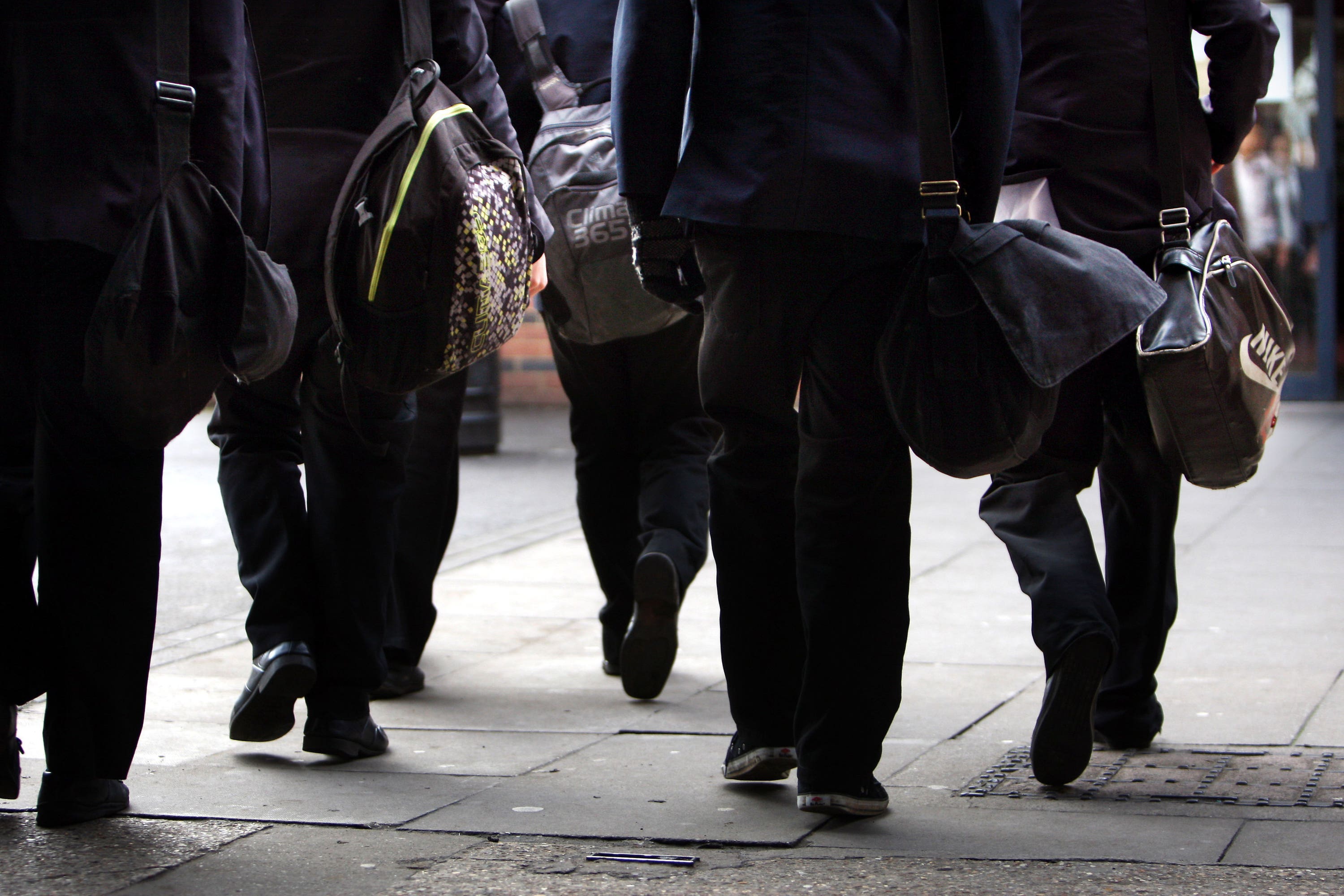Labour to warn of ‘lost generation’ over school absences in King’s Speech debate
The Opposition will use parliamentary debate of the Government’s legislative agenda to argue that action is urgently needed to combat the ‘epidemic’.

Your support helps us to tell the story
From reproductive rights to climate change to Big Tech, The Independent is on the ground when the story is developing. Whether it's investigating the financials of Elon Musk's pro-Trump PAC or producing our latest documentary, 'The A Word', which shines a light on the American women fighting for reproductive rights, we know how important it is to parse out the facts from the messaging.
At such a critical moment in US history, we need reporters on the ground. Your donation allows us to keep sending journalists to speak to both sides of the story.
The Independent is trusted by Americans across the entire political spectrum. And unlike many other quality news outlets, we choose not to lock Americans out of our reporting and analysis with paywalls. We believe quality journalism should be available to everyone, paid for by those who can afford it.
Your support makes all the difference.Labour will say England is facing a “lost generation of children” as it accuses the Tories of having “no plans” to tackle persistent school absences in the King’s Speech.
The Opposition will use parliamentary debate of the Government’s legislative agenda to warn that action is urgently needed to combat an “epidemic” of low attendance.
More than 1.5 million children were persistently absent across both the autumn and spring terms this year, which is almost double the number for the same period five years ago, according to party analysis of Department for Education data.
A pupil is deemed persistently absent if they miss 10% of lessons or more.
Rishi Sunak’s programme for the coming parliamentary session has 20 bills and one draft bill in all, with some that have been carried over from the last session to complete their passage in the next.
New laws for oil and gas projects in the North Sea – which the Conservatives hope will draw a dividing line with Labour – and a series of criminal justice proposals were among measures included in the package.
The proposed legislation to mandate oil and gas licences annually poses a challenge for the Opposition, which has said it would ban new exploration licences to focus on renewable energy if it takes power.
The Prime Minister said he had “turned a corner” to put the country on a better path, but Sir Keir Starmer said the fossil fuel policy was a “political gimmick” that “won’t take a penny off people’s energy bills”.
Labour in turn will take aim at the absence of education reform from the Government’s agenda, highlighting its own policy platform focused on modernising the curriculum and boosting the number of specialist teachers in schools.
Shadow education secretary Bridget Phillipson MP said: “Every day of education matters to the life chances of children: that’s why tackling persistent absence would be mission critical for Labour in government.
“The Conservatives have no plans to get to grips with the epidemic of persistent absence and the stakes couldn’t be higher: we could see a lost generation of school children without firm action.
“Tackling that epidemic starts with start with Labour mending the broken relationship between schools, families and government.”
In response, a Conservative Party source accused Labour of putting the education of children “at risk” with its promise to repeal legislation to enforce minimum service levels during strikes.
“In contrast, we have continued to work hard to ensure children have returned and remained back in the classroom so they can enjoy the education they deserve, whilst boosting their skills to drive our economy,” they said.
“Under this Conservative Government, England has climbed the international league tables in English and Maths with primary school children in England now being the best readers in the western world. On the other hand, Labour-run Wales are failing to deliver a quality education with students achieving poorer outcomes in English and Maths.”